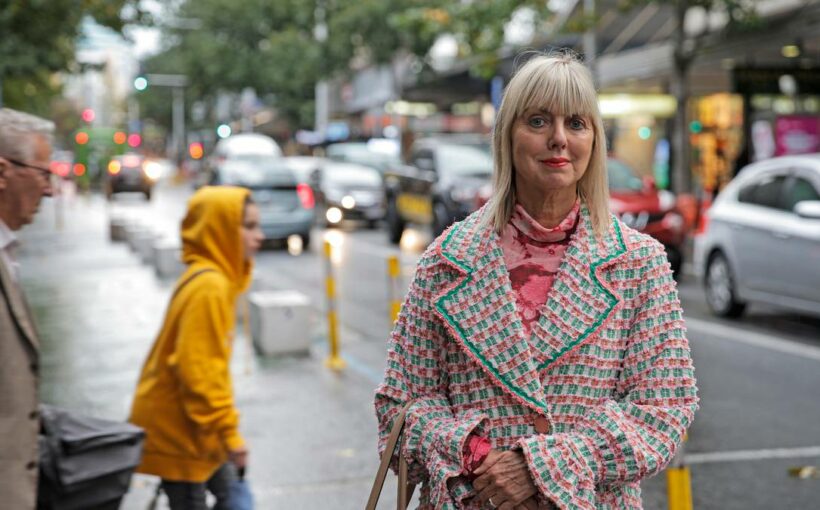Business groups are calling for mandatory vaccination passports to provide health and safety certainty for workers and consumers.
And they say it’s the Government who needs to take the lead to make this happen.
Heart of the City chief executive Viv Beck said the city centre has the greatest concentration of businesses in New Zealand and consumer-facing businesses are currently losing around $25m a week through the current Covid-19 restrictions.
“That’s a massive impact with the loss of tourists, students, events and more than 130,000 people working at home.”
Businesses need certainty but workers also need to feel safe to work and shoppers to go out and spend, which was only possible through vaccination.
“Vaccination is the best option right now and we need to ensure there is a clear framework that everyone understands,” Beck said.
“This is the reality we are all facing, and our businesses need as much certainty as possible. Many sectors are haemorrhaging they shouldn’t be put into a position where they have more stress about how they meet their health and safety responsibilities and who can or can’t come on to their premises,” Beck said.
She said the Government needed to take the lead on this and find ways to deal with if there are exemptions.
“Government needs to take a lead on this by making vaccine passports mandatory and determine how to deal with exemptions.
“They must respond to calls from sectors that are hurting by putting in place a system that allows them to get back to business. It’s too much for businesses to have to navigate through possible legal ramifications, and working out what exemptions would look like” Beck said.
Beck said: “the [Auckland] city centre represents 20 per cent of Auckland’s GDP and we need to ensure there is a strong trading period ahead to support our businesses, she said.
The Employers and Manufacturers Association (EMA) said the association was not asking for compulsory vaccination in the workplace but for the mandatory vaccine passports to enter the workplace.
“With exemptions and extra precautions applying to those who can’t or choose not to be vaccinated,” chief executive Brett O’Riley said.
He said carrying the passport – currently being investigated by Government – will give employers and employees the certainty and the safety they want in their workplace and will give an incentive to those hesitant about getting vaccinated.
“The majority of New Zealanders are getting vaccinated, and we know some employers were already using a no jab, no entry policy to protect their workplaces prior to this latest outbreak,” O’Riley said.
“Under health and safety legislation employers have to provide a safe and healthy workplace for their workers and carrying vaccine passports is one way to do this.
“You’ll need a vaccine passport at work and if you are visiting a workplace, retail or service outlet or a bar or restaurant you’ll also need a passport to enter.
“Those that can’t be vaccinated for medical, religious or other reasons will have to apply for and carry a digital exemption and may have to wear masks and/or register for track and tracing – current policy at Level 3 – to be allowed in,” O’Riley said.
“The unvaccinated may have to take some responsibility for the circumstances or decisions they face while the extra precautions would help employers manage a potential mix of vaccinated and unvaccinated staff.”
The EMA is not asking for compulsory vaccination in the workplace, he said.
“The current risk-based approach recommended by the Minister and MBIE is a recipe for court cases, costs and delays while jurisprudence is sorted. The last thing businesses need now is more uncertainty,” O’Reily said.
New Market Business Association chief executive Mark Knoff-Thomas said vaccine passports would allow businesses to manage the risks appropriately and it was important for people to get vaccinated.
“I agree with the principles of what the EMA is proposing. Vaccine passports that declare an individuals’ vaccination status will allow businesses to manage the risk appropriately, following Covid-19 safety protocols.”
“If people choose not to get vaccinated, that’s their choice, but they should be aware that they may have restrictions imposed on them. That’s the expectation we should be setting.”
“What I’d also like to see is the government setting some targets, with daily/weekly metrics to report on. People understand goals and targets. The so-called ‘team of five million’ would get on board and help get the numbers up,” Knoff-Thomas said.
On Monday, Auckland’s Chamber of Commerce chief executive Michael Barnett also said the Government needs to make it mandatory for workers to be vaccinated against Covid-19.
The business group has recently surveyed members and found 90 per cent endorsed mandatory workplace vaccination.
Barnett said it should be mandatory for workers across the country, not just limited to Auckland where the current Delta outbreak is centred.
“I don’t think we should be looking at Auckland. It should be wider than that. I think that other than those essential workers at the border business could try and make it mandatory but we would face legal challenges and years of testing and cost.
“What we need is for the government to remove all ambiguity or for the health order – that needs to be extended to give direction for employers. To me, that is the best way to go. Not just Auckland for the whole of NZ.”
He called on the Government to act now rather than letting it play out through the court system.
“For me, this is about safety, and it is safe for workplaces and safety for the consumers and the Government needs to remove the ambiguity and give clarity for employers and do it now. We can’t wait for months.”
Source: Read Full Article

/cloudfront-ap-southeast-2.images.arcpublishing.com/nzme/DLVEC75Y3NOVT6VFKGOKQPRRWY.jpg)
/cloudfront-ap-southeast-2.images.arcpublishing.com/nzme/NTELO6S6EV5LKEES5XF77SPHSA.jpg)
/cloudfront-ap-southeast-2.images.arcpublishing.com/nzme/ZK5A5V7IMUNQVK6PVFHPXTIXPM.jpg)
/cloudfront-ap-southeast-2.images.arcpublishing.com/nzme/XDQKELRPRIVZVFYF4QIUAHZHPI.jpg)